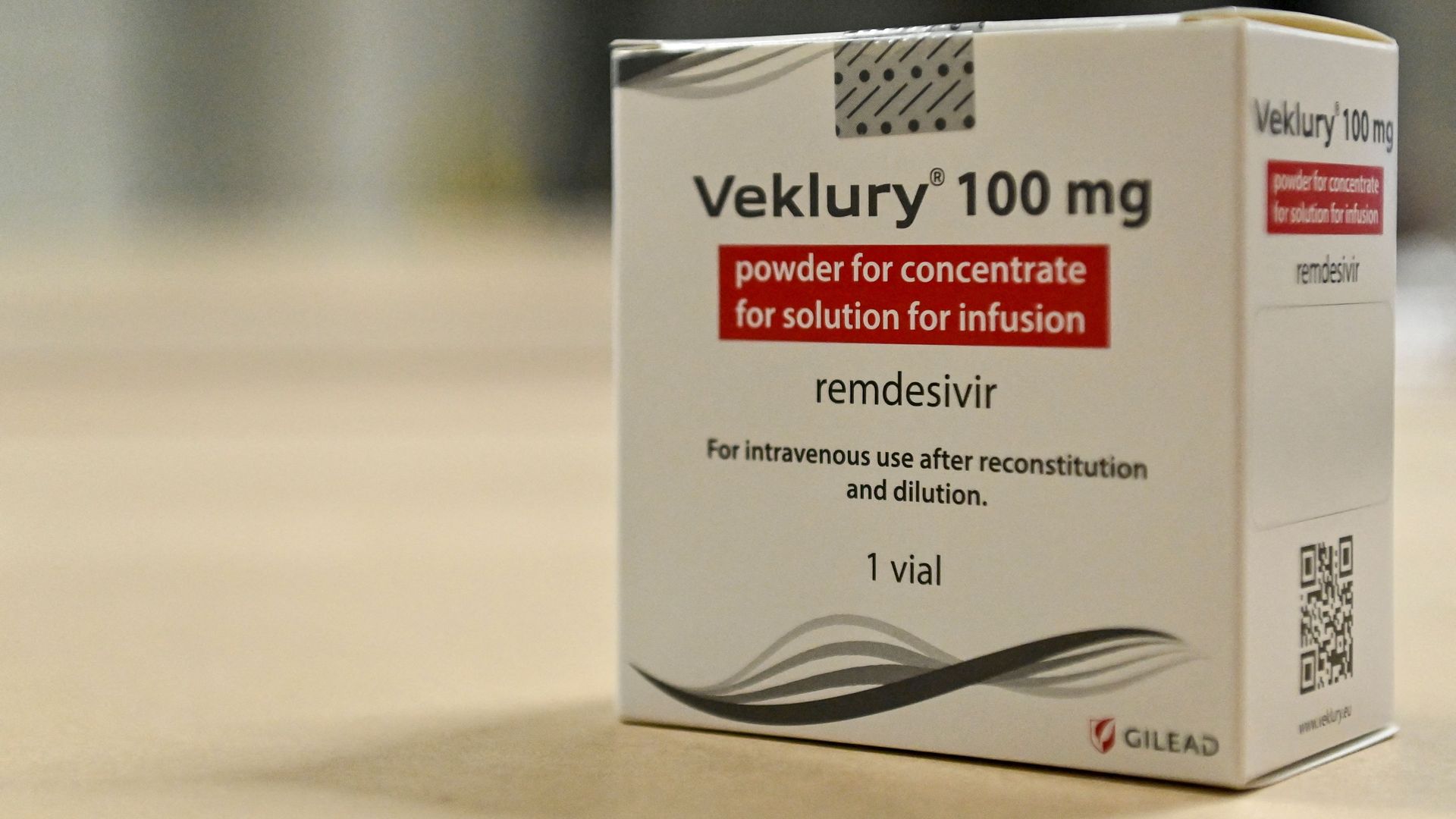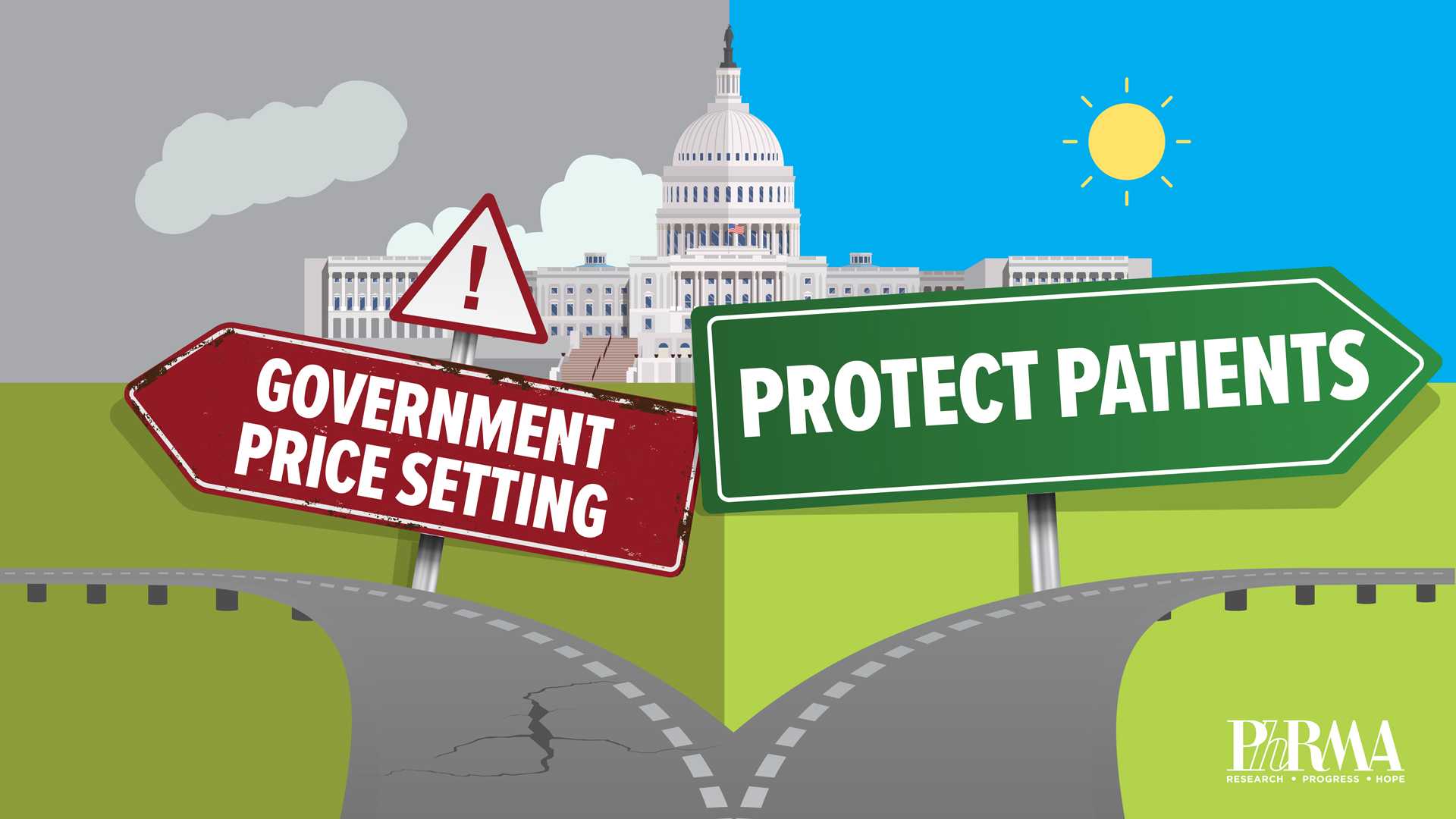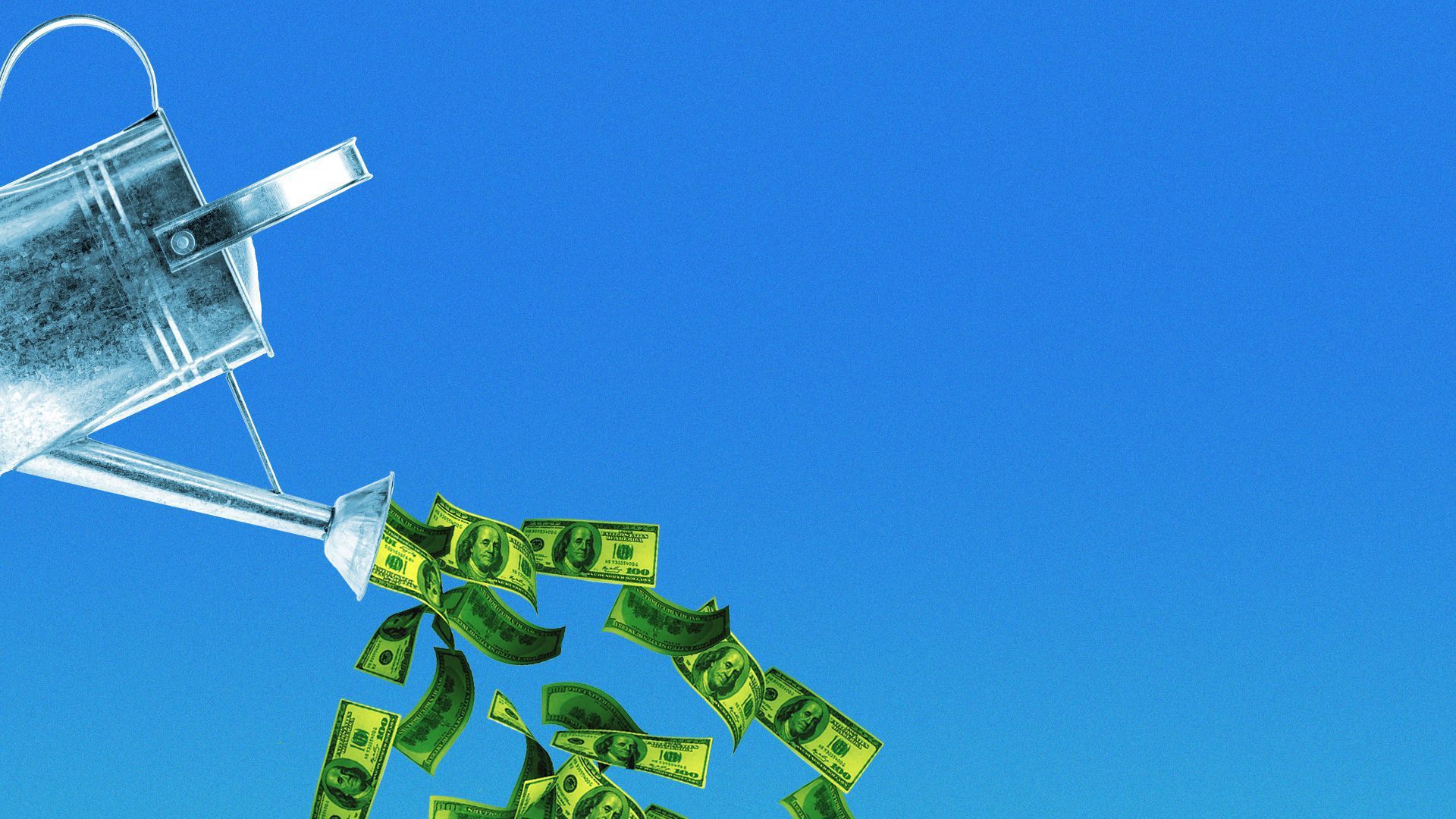📈 Plus, inflation is coming | Wednesday, February 02, 2022
| | | | | | | Presented By PhRMA | | | | Axios Vitals | | By Tina Reed ·Feb 02, 2022 | | Good morning, Vitals readers. Today's newsletter is 855 words or a 3-minute read. 👉 Check it out: Axios just announced our inaugural What's Next Summit on April 5. Register here to attend virtual live stream sessions and join discussions on trends that will revolutionize our future. - And ICYMI, here's a great piece by Axios' Joann Muller in the latest What's Next newsletter about the growth of prescription drug delivery by drone.
| | | | | | 1 big thing: Inflation hasn't hit health care — yet |  Data: Altarum; Chart: Jacque Schrag/Axios Economy-wide inflation has outpaced health care inflation by a wide margin since last April, but Americans should expect health care prices to rise more soon, Axios' Bob Herman writes. The big picture: Companies can raise the prices of food, furniture and other commodities immediately. That's not how it works in health care, where prices are set by government programs or negotiated with private insurers in advance, and are reflected in economic data later. The state of play: Consumer prices are increasing faster than at any other point in the past 40 years. - Health care inflation, meanwhile, has hovered between 2–3% since the pandemic started.
- More cheap generic drugs have kept medical inflation in check, whereas hospital and doctor services have driven a majority of the higher prices.
- Health care inflation trended higher than general inflation in 2020 due to things like federal subsidies and higher Medicare payments for COVID hospitalizations.
Between the lines: The things driving current inflation — labor shortages, supply chain problems and a golden opportunity for companies to boost profits — also exist in health care. - That's especially true for labor, as workers are burned out and calling in sick. Hospitals and other providers consequently have had to pay higher base wages and higher rates for travel nurses and other temporary staff.
What to watch: Medicare will release initial payment rates for 2023 in the spring and summer, and more importantly, some hospitals are signaling they will add higher costs and wages during their next round of negotiations with insurers. - "To be candid, that would not surprise me at all," Jennifer Mitzner, CFO of Baylor Scott & White Health in Texas, said at this year's JPMorgan Healthcare Conference when asked about inflation in rate negotiations. "I would imagine that's a conversation that's happening nationally."
Read the rest. |     | | | | | | 2. Biden relaunches cancer moonshot |  | | | Illustration: Aïda Amer/Axios | | | | President Biden is announcing today the revival of the cancer "moonshot" he first spearheaded as vice president. Details: Biden plans to announce a goal to reduce the age-adjusted death rate from cancer by 50% over 25 years, the naming is a cancer moonshot coordinator at the White House and a new "Cancer Cabinet to "end cancer as we know it," a senior administration official said. - Officials said they plan efforts to increase screening rates, address inequity, accelerate clinical trials and back advancements such as the use of mRNA to target cancer.
- The plan, however, does not yet include any new funding commitments.
What they're saying: Cancer experts say the original moonshot resulted in some major advancements — for instance, in immunotherapies, and said the idea of another moonshot was encouraging. - "We called for a Moonshot 2.0 because we desperately need it," said David Agus, CEO of the Lawrence J. Ellison Institute for Transformative Medicine, and the lead author of a commentary in Lancet Oncology calling for another moonshot effort.
- "What we've seen is a broad outline of tenets that make sense. The real question is: How is it going to be done? What assets from the federal government are going to be brought to bear here?"
|     | | | | | | 3. Peak Veklury |  | | | Photo: Dirk Waem/Belga/AFP via Getty Images | | | | Gilead Sciences netted $5.6 billion in sales last year from its COVID-19 treatment remdesivir, which is sold as Veklury, Bob writes. Why it matters: Gilead likely reached the pinnacle of Veklury sales, as the drug giant expects $2 billion of Veklury sales this year due to a "step-down in hospitalization rates." Yes, but: Gilead's gross profit margin on Veklury still hovers north of 90%. The big picture: Since the pandemic started, Gilead has collected more than $8 billion from an IV drug that has received billions of dollars in federal taxpayer funding and has modest benefits, at best, for COVID patients. |     | | | | | | A message from PhRMA | | Health care should help patients | | |  | | | | Government price setting won't stop insurers from shifting the cost of medicines to patients while they pocket the savings. Instead, let's cap out-of-pocket costs and make insurance work for you. Learn more about how these proposals have potentially devastating consequences for patients. | | | | | | 4. Marigold seeds growth with fresh funds |  | | | Illustration: Gabriella Turrisi/Axios | | | | Marigold Health, a behavioral health company with a unique approach to substance use disorder, received $6 million in fresh financing, sources tell Axios' Erin Brodwin. Why it matters: Behavioral health startups are seeing a spike in investor interest as issues like pandemic-era burnout and job loss contribute to a rise in anxiety and depression, and Marigold is the latest example. In January alone, deals in the space included: - Silicon Valley-based Lyra raised $235 million and acquired ICAS World, tipping its valuation to $5.56 billion.
- San Francisco- and London-based Big Health collected $75 million, bringing its total raised funds to just under $130 million.
- New York-based Mantra Health, whose services are focused on students, raised $22 million after being founded last year.
The bottom line: As the virtual behavioral health sector continues to expand, different forms of therapy will gain increased attention from investors and providers. Erin Brodwin co-authors the Axios Pro Health Tech deals newsletter. Subscribe at AxiosPro.com. |     | | | | | | 5. Catch up quick | - The three largest U.S. drug distributors and drugmaker Johnson & Johnson agreed to pay $590 million to Native American tribes in a suit over the companies' role in fueling the opioid epidemic. (Reuters)
- Officials are calling to "change a culture that accepts as inevitable the loss of tens of thousands of people in traffic crashes" after a record number of traffic deaths last year. (Axios)
- Pfizer and BioNTech on yesterday asked the Food and Drug Administration to authorize its COVID-19 vaccine for children 6 months to 5 years old. (Axios)
|     | | | | | | A message from PhRMA | | Middlemen are pocketing your discounts | | |  | | | | Government price setting policies won't stop insurers and other middlemen from shifting medicine costs to you. Get involved: Use your voice to stand against dangerous health care proposals like government price setting. Get more details. | | | | 📫 Did someone forward this email to you? Here's how to subscribe. |  | Bring the strength of Smart Brevity® to your team — more effective communications, powered by Axios HQ. | | | | | | Axios thanks our partners for supporting our newsletters. If you're interested in advertising, learn more here.
Sponsorship has no influence on editorial content. Axios, 3100 Clarendon Blvd, Suite 1300, Arlington VA 22201 | | | You received this email because you signed up for newsletters from Axios.
Change your preferences or unsubscribe here. | | | Was this email forwarded to you?
Sign up now to get Axios in your inbox. | | | | Follow Axios on social media:    | | | | | |








No comments:
Post a Comment